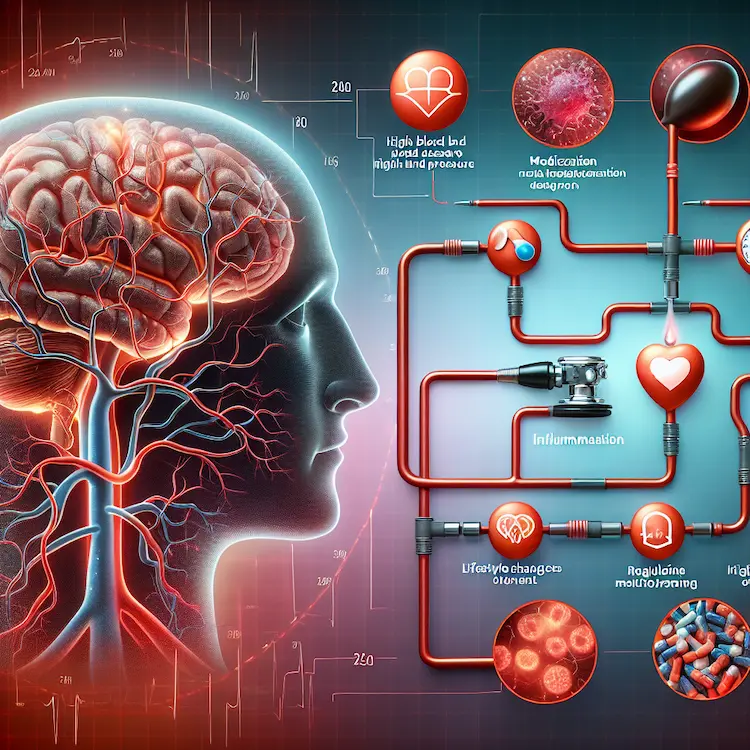The intricate relationship between blood pressure and brain health, particularly in the context of Alzheimer’s disease, has become a focal point of medical research in recent years. As our understanding of this connection deepens, it becomes increasingly clear that managing cardiovascular health may play a crucial role in preserving cognitive function and potentially reducing the risk of Alzheimer’s disease.
High blood pressure, or hypertension, has long been associated with various health issues, but its impact on brain health is particularly concerning. Research has shown that individuals with untreated high blood pressure have a significantly higher risk of developing Alzheimer’s disease compared to those with normal blood pressure. In fact, a study found that people with untreated hypertension had a 36% higher risk of Alzheimer’s disease.
The connection between blood pressure and Alzheimer’s is not limited to systolic blood pressure (the top number in a blood pressure reading). Both systolic and diastolic blood pressure (the bottom number) have been linked to increased risk of cognitive decline and dementia. However, the relationship is complex and can vary depending on factors such as age and sex.
Several mechanisms may explain the link between blood pressure and Alzheimer’s disease:

Encouragingly, studies have shown that managing blood pressure through medication and lifestyle changes may help reduce the risk of Alzheimer’s disease and slow cognitive decline in those already affected.
A comprehensive analysis of data from multiple countries found that treating high blood pressure with medication reduced the risk of dementia by 12% and the risk of developing Alzheimer’s disease by 16%. Importantly, this benefit was observed regardless of the type of antihypertensive medication used.
While it’s clear that managing blood pressure is important for brain health, determining the optimal blood pressure target is complex. Research has identified a U-shaped relationship between blood pressure and Alzheimer’s risk, suggesting that both very high and very low blood pressure may be detrimental.
Current recommendations suggest aiming for a systolic blood pressure in the low 120s or below, and a diastolic pressure in the low 70s or below. However, it’s crucial to consult with a healthcare provider to determine personalized blood pressure targets based on individual health factors.
The impact of blood pressure on Alzheimer’s risk may vary depending on age. Some studies have found that elevated blood pressure in midlife (ages 40-64) is associated with an increased risk of Alzheimer’s disease later in life. However, the relationship becomes more complex in older adults, with some research suggesting that slightly higher blood pressure in individuals over 80 may actually be protective against cognitive decline.
Interestingly, some studies have found gender differences in the relationship between blood pressure and Alzheimer’s risk. For instance, one meta-analysis found that only women were at a higher risk of Alzheimer’s disease when diastolic blood pressure levels exceeded 90 mmHg.
Given the potential impact of blood pressure on brain health, taking steps to manage hypertension is crucial. Here are some practical strategies:

While the connection between blood pressure and Alzheimer’s risk is becoming clearer, many questions remain. Ongoing research is focusing on:
The relationship between blood pressure and brain health, particularly in the context of Alzheimer’s disease, underscores the importance of cardiovascular health in maintaining cognitive function. By managing blood pressure through medication, lifestyle changes, and regular monitoring, individuals may be able to reduce their risk of Alzheimer’s disease and other forms of dementia.
As research in this field continues to evolve, it’s clear that a holistic approach to health, encompassing both cardiovascular and cognitive well-being, is crucial for healthy aging. By staying informed about the latest findings and working closely with healthcare providers, individuals can take proactive steps to protect their brain health and potentially reduce their risk of Alzheimer’s disease.